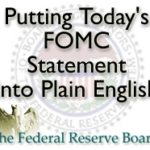
Unemployment Number Begin to Decline
This morning’s jobs report is causing mortgage rates to rise, capping a week during which rates have already jumped 3/8 percent off all-time lows.
The government’s November Non-Farm Payrolls report reinforced the notion that the recession is nearly over, if not over already.
Just 11,000 jobs were lost last month — much fewer than analysts had expected — as the Unemployment Rate fell to 10.0%.
If it seems strange to be talking economic recovery while Americans are still losing jobs — 7.2 million since 2008 — remember that data always needs context.
Good News for Economy is Bad News for Mortgage Rates
See, analysts view employment figures as a lagging indicator for the economy. This is because business owners tend to make hiring decisions based on how business has been — not on how it will be at some point in the future.
The jobs report rarely reflects the “right now”. As an example, job loss peaked in January 2009 — 4 months after the height of the financial crisis.
We saw the same pattern during the Recession of 2001.
According to government data, during the last recession, job loss peaked in October 2001 but the recession ended the very next month. It wasn’t until October 2002 that employment went net positive on a monthly basis.
And this is why investors are cheering November’s jobs report. Better-than-expected numbers and a falling Unemployment Rate show that the economy is improving.
Unfortunately for rate shoppers, better-than-expected data is pushing mortgage rates higher. Rates are expected to open 0.250% higher versus yesterday’s close.









